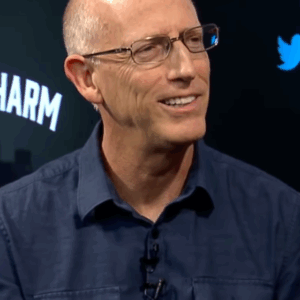
Why the Hell Would You Want to Privatize Libraries?
Donald Cohen and Allen Mikaelian on the Priceless, Non-Transactional Aspects of Libraries
In the pages of the New York Review of Books, author Sue Halpern recalled her time in a “remote mountain town” that was large in area but small in population and had never had a public library. The residents didn’t appear to want one at first; a proposal for a really small tax to create one went down in flames, and brought out comments like “libraries are communist.” When the town went ahead and created one anyway, with a tiny budget, a makeshift spare room, and three “deputized” staff, they expected they’d need only five hundred library cards, if that, to carry them through the year. They ran out after three weeks.
By the end of the year they had 1,500 card-carrying patrons. They started “a book club, a preschool story hour, movie night, and a play-reading group.” The library became a community hub where teenagers could use the internet connection to do homework and quilters could trade patterns, and Halpern decided that “the man who had said that libraries were communist had been right. A public library is predicated on an ethos of sharing and egalitarianism. It is nonjudgmental. It stands in stark opposition to the materialism and individualism that otherwise define our culture.”
Public libraries have been remarkably resistant, though not immune, to the waves of privatization, even as other public things, including things that are arguably more essential and harder to privatize, have been auctioned off. Some might say that libraries should be the first thing to go: some clearly see them as nonessential, and it would not be hard to see charging a per-use or subscription fee to support them. In our climate of austerity it would make economic sense. It would fit perfectly with the strands in our culture that celebrate materialism and individualism. And yet the idea of introducing even a bit of privatization to public libraries often seems like a bridge too far.
Public libraries have been remarkably resistant, though not immune, to the waves of privatization, even as other public things have been auctioned off.
Libraries resist privatization because they are not just about the books. We could easily replace the transactional part of libraries with corporations, but we’d be left with a place where you come in, get your books, pay, and leave. You’d lose the opportunity to get help with homework or trade quilt patterns or meet people who are eager to recommend their favorite reads. And that’s just the surface of what libraries do, especially in a time when most other social services have been slashed. Author Deborah Fallows, after crisscrossing the nation, decided that libraries have become “second responders.”
In Ferguson, Missouri, the library provided refuge during the civil unrest, staying open late and offering classes for kids. Librarians kept their spaces open—without light or heat—in New Jersey and Queens in the aftermath of Hurricane Sandy, even offering story time to kids. Fallows made note of libraries that responded to mass shootings and wildfires, but they were on the front lines even when they were not in the midst of an aftermath. A library in Arizona sponsors a team of nurses to visit patrons; Bend, Oregon, has librarians trained in handling questions about personal finance; some libraries train their staff in how to administer the anti-overdose drug naloxone. And then there’s the adult literacy, GED, and English language classes run by libraries, either on their own or through partnerships with nonprofits. Most of this emerges naturally from the dedication of librarians, who are highly educated but rarely well paid. As one library employee told Fallows, “Sometimes librarians are Batman.”
One person who would disagree is Frank Pezzanite, co-founder of Library Systems and Services (LS&S), a company that runs privatized libraries. In his view, “a lot of libraries are atrocious.” For this, he blames not underfunding, but the librarians themselves. “Their policies are all about job security,” he told a reporter. “You can go to a library for 35 years and never have to do anything and then have your retirement.” Pezzanite seems to have made it his mission in life to whip these lazy librarians into shape. When his company takes over a library, the librarians who work there—the ones who aren’t laid off outright—become his employees, and he has a message for them: “We’re not running our company that way. You come to us, you’re going to have to work.”
LS&S started out as a software company. Now, after doubling in size over the last ten years, it has taken over 17 library systems in five states and runs over eighty branches. Through this growth, and the backing of the private venture firm Argosy Capital Group, it has become the nation’s fifth-largest library system. When LS&S takes over, it receives a set fee from a local government. The corporation gets control over the collection, services, and programs. Most important, it takes over staffing. Librarians at these facilities are no longer public servants; they serve at the pleasure of LS&S. Although it has been building its portfolio since the late 1990s, LS&S has met with little competition; its CEO likes to brag that it boldly goes “where angels fear to tread,” namely, into local fights with committed activists who love their libraries and librarians.
LS&S has developed a pitch that promises innovation, economies of scale, and cost savings. In reality, it hollows out everything that makes a local library a public good. The Maryland-based company’s leadership swaggers like true Silicon Valley disruptors, but those who know the field don’t see it pay much attention to real innovation. The president of the Connecticut Library Association came away from the company’s pitch with the comment that “everything that they’re talking about is standard practice.” An audit of one of its library systems puzzled over the glaring absence of subscription databases and ebook providers, especially given that LS&S, being the fifth-largest library system in America, should be able to get deep volume discounts. The same audit noted, “The absence of a written service plan, staffing plan, technology plan, a contemporary collection development and management plan, and the existence of many dated operational policies, is concerning. Why is this when LS&S has been operating the Library for 10 years?”
Rather than innovate and use its considerable bulk purchasing power to serve local needs, the corporation saves money by narrowing its collection: “They focus on the best sellers and pull the less popular books,” explained a librarian during testimony to the Escondido Library Board of Trustees. “This is at odds with what libraries do.” An independent investigation of the LS&S-run Jackson County, Oregon, library system found that while the county’s Latino population had tripled over a period of 24 years, the Spanish-language collection had grown hardly at all. There were no story times in Spanish, the book giveaway for kids included no Spanish titles, and the website was only in English. All this gave the investigators “the overall impression that Spanish speakers are not considered part of the community nor welcome at the Library.”
One thing LS&S is good at, however, is devaluing its staff. The company was penalized almost $70,000 for “wage and hour” violations by the Department of Labor in 2017. The company co-founder made clear his contempt for the allegedly lazy librarian doing nothing for 35 years, and his company brings this contempt into every contract it secures. The sales pitch made to local governments plays directly to their fiscal anxieties: “Pensions crushed General Motors, and it is crushing the governments in California,” Pezzanite claimed. This is a classic example of burdening public servants for leadership failures, and it’s deeply wrong. In California’s case, governments woefully and knowingly underfunded the pension fund, effectively stealing from their own employees (and it’s funny how no one mentions GM’s executive salaries and golden parachutes, which remained exorbitant even in the face of failure).
Pezzanite’s solution is to encourage governments to break promises to these public servants and make them bear the costs by giving up their pensions and/or losing their jobs. The library board of trustees in Prince William County, Maryland, made public the offer it had received and the answers LS&S provided: to achieve the promised savings, 20 percent of staff would be laid off; the rest would have their benefits cut and receive no retirement benefits. The board decided not to privatize, citing as one of their reasons that the offer was “unfair to employees.” Another reason was that LS&S “is reluctant to talk with the Library Board in a public setting. We are an open system.” The public setting seemed to be one place where LS&S did indeed “fear to tread.”
The decision to deprive people who live in the community of their retirement is also a decision to further enrich the private-equity owners of LS&S.
Some governments value their employees; others see them as disposable and as the easiest way to make up a budget shortfall. But what do these savings amount to? By some estimates Escondido, California, was facing a future pension burden of $18 million. The proposal from LS&S would save them $400,000 per year. That savings would catch up with the pension burden in some 45 years. These privatization solutions to fiscal shortfalls are not comprehensive. They are neither bold nor big, but they do raise big questions about our values. The decision to deprive people who live in the community of their retirement is also a decision to further enrich the private-equity owners of LS&S. While the city saves a pittance, the privatizers cut services to the community and cut benefits to those who provide those services. The more ruthless they are, the more public money they get to take out of the county, and even the state.
In Jackson County, the state library report revealed, LS&S spent 28 percent of its contract on “other.” No one could tell what this actually referred to. It wasn’t librarian salaries, and it wasn’t the collection, which were accounted for separately and were determined to be woefully insufficient. Was the county getting a good deal? Hard to tell when there was a gaping hole of who-knows-what in the middle of the balance sheet. The auditors threw up their hands: “The lack of transparency makes it impossible for the Board to determine if it is getting good value for the dollar.” But it seemed clear that LS&S was pretty comfortable with the arrangement. It could, to paraphrase the co-founder, keep doing nothing while collecting its fees from the public.
Despite LS&S’s strong growth, the strong resistance it has met in several counties and cities appears to have gotten under the skin of Mr. Pezzanite, who seems baffled and frustrated. “There’s this American flag, apple pie thing about libraries,” he remarked. “Somehow they have been put in the category of a sacred organization.” He’s absolutely right. Citizens do see them as all-American and utterly sacred. Half of all Americans over the age of sixteen have used a library in the past year. Some of the communities LS&S has approached have participation rates of 74 percent. Mr. Pezzanite should not be surprised at the resistance.
When LS&S came to Santa Clarita, California, Jane Hanson, eighty-one years old and a frequent library visitor for fifty years, became an activist for the first time since the Vietnam War and gathered 1,200 signatures over the course of three weekends. “A library is the heart of the community,” she explained. “I’m in favor of private enterprise, but I can’t feel comfortable with what the city is doing here.” Another patron insisted that “public libraries invoke images of our freedom to learn, a cornerstone of our democracy.” And a religious leader told the city council of another LS&S target that “a library is a center of a community. Sacred centers belong to the people, should be controlled by the people, for the benefit of the people.” Such passion has emerged in each one of LS&S’s struggles; in fact, it seems like the only times it wins is when politicians are willing to fly in the face of what the public clearly wants.
In Escondido, California, hundreds of citizens turned out to speak against the LS&S proposal. They waved signs that said, “Librarians are sacred” and “Don’t export our tax $$$ out of state.” Speakers made arguments such as: “We have a Barnes & Noble in town. I happen to be very fond of that store, but we have one. We don’t need our library to be another clone of that.” Another objected to LS&S’s “Costco approach” to stocking library shelves. In defense of the public librarians, they argued that they are “highly educated civil servants. They live here. They are part of the community.” They pleaded: “Do not do this. This proposed contract is a mistake.” They begged: “We’re paying a private equity firm here $2.4 million a year. It’s wrong. Please listen to these citizens.”
The library had been serving the community since 1894. It saw 1,400 people every day. It had a collection of two hundred thousand books and no clear indication of what would happen to that collection under privatization. As the city council heard protest after protest, the LS&S representative was largely silent, telling a reporter, “It’s an emotional issue and it always will be because libraries are the heart and soul of a community.” He then insisted that the company did not do “privatization,” only “management services.” (This is bunk. When a company controls a public good, in this case employees and the library collection, it is privatization.) The city council, meanwhile, was growing weary of hearing from opposition. “I’m tired of this crap,” one council member blurted out, referring to the pleas of his own constituents. None of the citizens in the room spoke in favor of the LS&S plan. And the city council adopted it anyway.
Speaking generally about library privatization, columnist Michael Hiltzik wrote, “If you’re looking for a sign that local political leaders are intent on giving up all pretense of working for the public interest, look no further.” Yes, stepping away from libraries is a good barometer of public officials’ contempt for the public, but we would go further. These are assaults on our communities. They are attempts to undermine our connections to each other, connections that can’t be forged at a Barnes & Noble or a Starbucks. They are efforts to devalue the work and passion of public servants and their role as the glue of our communities. And they are efforts to turn us from citizens into mere consumers.
Fortunately, in most places, the public recognizes them as such, and seems willing to fight back. In some ways, LS&S, with its tone-deaf leadership, undisguised greed, and disdain for “sacred” libraries and their staffs, has done us a favor. It reveals how fragile and vulnerable our public things can be and has inspired communities to come together to protect them. Our elected officials, one hopes, will eventually listen.
__________________________________

Copyright © 2021 by Donald Cohen and Allen Mikaelia. This excerpt originally appeared in The Privatization of Everything: How the Plunder of Public Goods Transformed America and How We Can Fight Back published by The New Press. Reprinted here with permission.
Donald Cohen and Allen Mikaelian
Donald Cohen is the founder and executive director of In the Public Interest, an Oakland, California–based national research and policy center that studies public goods and services. His opinion pieces and articles have appeared in the New York Times, Reuters, Los Angeles Times, and the New Republic, among others. The co-author (with Allen Mikaelian) of The Privatization of Everything (The New Press), he lives in Los Angeles.
Allen Mikaelian is a New York Times bestselling author. The co-author (with Donald Cohen) of The Privatization of Everything (The New Press), he lives in Washington, DC.



















